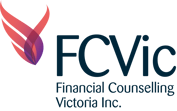The Energy Hardship Forum is one of a series of different sector forums bringing together industry representatives and Victorian financial counsellors to discuss how best to respond to hardship in the rapidly evolving context of the pandemic and recession. The discussions between financial counsellors and energy retailers in October followed the earlier forum with representatives from the banking industry in September.
In planning this Energy Hardship Forum, the aim was to:
- Invite energy retailers to discuss key elements of their hardship practices (and business challenges) with financial counsellors
- Ask financial counsellors to share their experience about vulnerable clients: what works better in terms of tailored response and why; how to reduce client risk arising from poor response
- Develop common understanding regarding hardship measures to assist clients
- Promote best practice guidelines
- Facilitate referrals to financial counsellors and expedite the process for financial counsellors to obtain authority to act on behalf of clients
FCVic would like to acknowledge and thank Ciara and Gabby from Thriving Communities Partnership (TCP) for helping to facilitate the Forum. 26 financial counsellors from across Victoria met with representatives from AGL, City West Water, Energy Australia, Momentum Energy, Origin Energy, Powershop, Vic Water and Yarra Valley Water.
The energy retailers reported on their experiences supporting customers during COVID-19. All of them described a focus on providing tailored assistance based on the specific needs of each customer, as well as offering specialised programs to help customers manage their bills.
A common challenge for all retailers was assisting customers to complete the Utility Relief Grant (URG) application. This resulted in extended call times which has flow on effects on customer queue wait times. However, there was an overall commitment from the retailers to ensure customers are supported with the application, regardless of the implications on time. The energy retailers were keen to work with financial counsellors, together with the Department of Health & Human Services and the Essential Services Commission, to improve this important program.
Given the increased pressure on frontline staff during COVID-19, who have been mostly working from home, the energy retailers also reported on the steps they have taken to provide staff with extra support and assistance.
A number of the energy retailers are also developing ways for more proactive interactions with their customers as a primary prevention measure to energy hardship. Click here to read a detailed summary of the energy retailers’ responses.
Financial counsellors reported seeing many clients with high energy bills. As a result of COVID-19, people are spending more time at home, meaning their energy consumption has increased, while at the same time their income may be lower than what they were used to. To a certain extent, this issue had been masked by government supplements or other support measures; however, it was acknowledged that these are only temporary measures and there will be a bigger impact when those supports are ended. It can be very difficult for people to reduce their energy usage.
During the discussion, some financial counsellors talked about the increasing complexity of client situations that they’re witnessing, and a growing number of people who could once afford to make small payments that now can’t afford to pay anything. Some financial counsellors commented that many energy companies provide payment extensions that are not long enough (14-30 days), which creates extra work for the financial counsellors to follow up in regard to further arrangements.
The financial counsellors were also seeking greater consistency in the approaches by energy retailers, particularly for customers who are experiencing family violence. The responses can sometimes differ depending on who you speak to. It was suggested that the energy retailers consider dedicated family violence teams to improve responses for those customers.
It was also discussed at the Forum that energy retailers have inconsistent approaches to third-party authorisations. COVID-19 has created greater challenges in this area, as not all customers have access or capacity to use the technology required to meet the retailers’ requirements for authorising financial counsellors to act on their behalf. This is an opportunity for energy retailers to review their authorisation processes to ensure they are appropriate for supporting their most vulnerable customers.
Many other customers are in need of greater in-language support, as their usual support networks had been predominantly face-to-face, and they are facing significant access barriers with communication channels being primarily over the phone or online. Momentum Energy shared that they are working with another TCP partner, Language Loop, on a service which aims to help provide translations for customers seeking to access assistance. The intention is to improve accessibility for customers whose first language is not English.
For customers with the capacity to self-advocate, financial counsellors would like to see them empowered to deal directly with their energy providers and achieve the same outcomes that a financial counsellor would receive. However, it was identified that customers will often come away with a different outcome when advocating for themselves. This was an area the financial counsellors would like to see improve.
The energy retailers acknowledged that there is a lot that can be gained from working more closely with financial counsellors. There are opportunities for retailers to develop direct lines of communication between financial counsellors and hardship teams, as well as increased coaching and training for all staff.
The Energy Hardship Forum presented a unique and timely opportunity to have rich, open and transparent conversations. We know that levels of hardship will rise as we see further reductions to JobSeeker payments, and the discontinuation of JobKeeper. FCVic acknowledges the importance of building strong relationships with the energy sector for more collaborations in the future.
